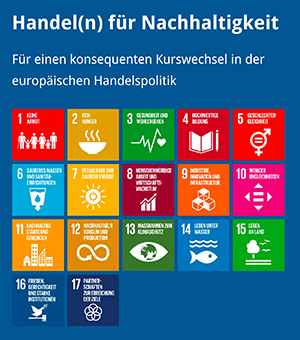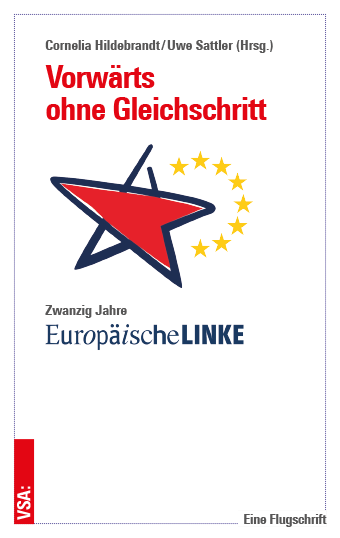I was asked to comment on how the AfCTA fits into the European Union’s trade policy agenda, with several of the EPAs in place, and the post-Cotonou negotiations concluded.
Before I answer, let me stress again that I am not the European Commission. I am a left wing Member of the European Parliament and may be to differ from those views that I describe to you as contemporary European strategy.
The EPAs are a symbol of the past neoliberal trade strategy of the European Union. We fought against them, and we managed to contain them to sort of “goods only” trade agreements. What the neoliberal advisors had in mind at that time, were so-called comprehensive agreements with strong regulatory influence. They were supposed to be insurances for unhindered market access for EU-based companies - now and in the future. They were supposed to be comprehensive also in coverage, including all kinds of private and public services and public procurement. They were supposed to safeguard investors through investor-to-state dispute settlement mechanisms, rather than safeguarding public interest or the right to regulate. Most of this has never materialised. At some point in time, a certain EPA negotiation fatigue occurred on the EU side, and those EPAs finally concluded by Sandra Galina have never reach the scope originally intended. Still, they did disturb to quite some extend regional co-operation within the West African region, and caused also a lot of headaches in the East African Community.
As you will know, Mauritius has talked the governments of the other ESA EPA states into negotiating a deepened EPA for that region, and negotiations are advancing since last autumn. It still strucks me how the interests of Mauritius and Zimbabwe or Mozambique could be equally met in a comprehensive EPA.
But if I say so for a short list of countries in one African region, it means that I can on only try to estimate the difficulties involved in uniting almost all African states in one Free Trade Area. Well, maybe I just used the magical words explaining the attempt: all-African. The pan-African dream has been strong for all these years, from the liberation movements against European colonialism, through the wind of change period, to the most recent period of African pride and self-esteem.
In meetings like today, my intention is to stay open minded and to understand the level of importance given to the common continental dimension of the idea. It could be that this is a window of opportunity to overcome borders drawn by colonial powers and to let local people benefit more from sharing and trading with their neighbours. It could be an opportunity for the African continent to reduce dependence from trading with Europe, and to increase its autonomy through local and intra-regional trade and production chains. And therefore it is equally important to be as precise as possible: We are speaking on one side of dimensions of state actors while in the economic reality and linked to it dimensions on the other we have also to address the real stakeholders, the acting subjects within the societies and states too.
Let me stress that I am a strong supporter of the European unification process, which has been ongoing for many decades now. European unification and European integration shall prevent those military conflicts between European states, which were characteristic for our continent for a long time.
The European integration process is teaching us the lesson that integrating the population of a continent is about more than opening markets and abolishing tariffs. Both was instrumental though, and establishing the free movement of people and of goods let people experience personally that they are living in one Union. This does not work without defining common regulatory standards and harmonisation of a number of products: Think of product safety, think of consumer protection, think of environmental issue, you name it. And the more it was - and it remains - about defining common rules and approaches, the more we needed to delegate powers from the Member States to the European level. The more we delegated legislative powers to the European level, the more evident it became that legitimation for this could not be achieved without strengthening democratic scrutiny and therefore increasing the role of the European Parliament as the only directly-elected European institution. It mirrors “EUropean citizens interests and concerns, making it finally the co-legislator in Europe as a parallel chamber to the conclusions drawn by the Council of governments.
To walk all this way, one has to make the first steps. The African Union has been there for quite some time now, but delegation of powers from nation state level to African level is very limited. The related exercise of democratic control over such delegated powers by the Pan-African Parliament is also far from established. This is really challenging and looking into social realities more than that - but that should not discourage African civil society from moving on towards creating democratic continental institutions.
And we - citizens, civil society, institutions within the EU 27 Member States - still have a long way to go to guarantee and further enhance the democratic functioning of European Union.
The way is not without dangers. Neoliberal forces in the European Union were delighted about the initiative for creating the AfCFTA in particular. In fact, a lot of financial support for the process to set it up came from the EU. Many of those consultancy firms involved were also consultants for neoliberal projects in the EU. Some analysts say, the AfCFTA contains structurally more of those neoliberal elements that were originally intended to form part of the EPAs, than the EPAs themselves.
Some in the Commission will now lean back and way and see how the implementation of AfCFTA will proceed. Until then the EPAs are in place, as well as other arrangements like GSP.
Others in the Commission, and in the European Parliament, want to move on towards a much stronger partnership between our two continents. Parliament recently adopted its view on the new EU - Africa strategy. I guess you will find quite a lotof positive elements in that document. And people like myself and a growing number of colleagues will continue to work on addressing the necessary ecological and social transformation of our economy and our society as a task for both our continents.
The pandemic raises a lot of new problems and challenges, contradictions with and between states and our entities. But I see also a window of opportunities which gives us a chance to build better after the pandemic: To become more resilient and to become more sustainable.
To succeed, we need to work together. We need to share knowledge and technology. Think of the solar energy potential of Africa. The continent could become completely independent from fossil fuels. Decentralised renewable energy could bring light in every street and every house. The availability of energy will become essential for a successful digitisation and for modern integrated services like distant medical diagnostics. We need to find new ways to produce to satisfy the needs of our populations without consuming so much resources and pollution.
Having common regulatory approached e.g. on energy, on data protection, on waste and circular economy will help us to cooperate. In a positive vision, the AU and its AfCFTA will service to facilitate this co-operation with the EU and its common market and regulatory institutions. We have to organize joint debates about the values and the needs which should guide us in shaoping our societies both politically and economically. Trade is about the ways of production and consumtion and we have in the new reality of immediate access to information and sharing of interests in the 21st century the mechansims, tools and possibilities in our hands to define the ways we want to live. And therefore allow me to stress: Let us also listen to the warnings of possible failures or high-jacking of this approach, in order to achieve the positive result and reach the SDGs of UN Agenda 2030 together.
This is the paradigm that we need to change as THE LEFT in Europe and progressive forces in Africa: we must measure success no longer by GDP growth rates. There are lot of new concepts and criteria worked out already: from Gini coefficient to the well-being-societies criteria. Let’s be clear and frank: We must measure success by achieving the 17 sustainable development goals. This means to reduce poverty, to promote equality, to establish access to services in health and education, to mitigate and prevent climate change as well as to ensure human rights both the social and political ones, individually and collectively. I am convinced that Fair Trade and the SDGs can provide the benchmark for success in our societies. And that must be put in the core of all policies within the integration processes of both the EU and the AU.









